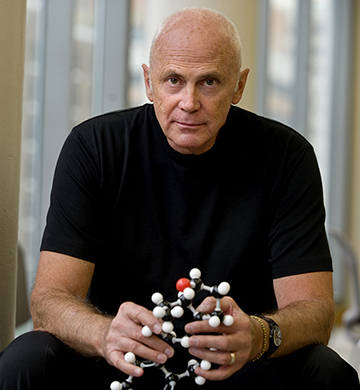
Biography
John A. McLachlan, Ph.D., received his undergraduate degree from the Johns Hopkins University where he was co-captain of the varsity football team. He is currently the Celia Scott Weatherhead and Albert J. Weatherhead, III Distinguished Chair in Environmental Studies as well as holding a Professorship in the Department of Pharmacology in the School of Medicine and an adjunct Professorship in Ecology and Evolutionary Biology in the School of Science and Engineering at Tulane University. From 1995 to 2012, he was also the Director of the Tulane/Xavier Center for Bioenvironmental Research (CBR), a comprehensive center that deals with environment in an inclusive manner.
Prior to coming to Tulane, McLachlan was Scientific Director at the National Institute of Environmental Health Sciences, NIH. While at NIEHS, Professor McLachlan developed the conceptual framework thirty years ago for what is now called Endocrine Disrupting Chemicals. Dr. McLachlan has published over 200 peer-reviewed papers and sixty review articles dealing with the environment and the reproductive system and, in the process, helped introduce the concept of epigenetics to environmental research and thinking. He has been a leader in research and communication about the environment and women’s reproductive health.
At Tulane, Professor McLachlan established a translational research program on women’s health focusing on ovarian hormones and the environment. He expanded the vision in hormone biology to include evolutionary aspects of hormone action. His research and outreach team emphasized understudied diseases like uterine fibroids. McLachlan’s commitment to “use-inspired research” led him to explore community-based issues that could be approached in trans-disciplinary ways, using the Mississippi River as an overarching metaphor for research and teaching. Faculty from the humanities, performing arts, natural sciences, social sciences came together around the ideas related to urban centers in river deltas. For a period of time, Tulane operated the only research vessel dedicated to river research. A highlight of this effort was, in collaboration with the author, John Barry, the planning and design of RiverSphere, a research and cultural center located on seven acres of riverfront in the center of New Orleans.
In September 2005, Professor McLachlan confronted the aftermath of Hurricane Katrina by establishing the NSF-funded Katrina Environmental Research and Restoration Network to coordinate research and restoration and, since 2009, has been co-principal investigator on a multi-disciplinary NSF grant, entitled, The “New Normal”: The Impact of Trauma on Urban Ecological and Social Diversity which studies how cities and communities function in the context of their natural ecosystems to gain a better understanding of resilience, recovery, and sustainability. McLachlan’s restoration efforts focused on the Lower Ninth Ward. He also took an active role in public education serving on the organizing committee for the New Orleans Charter High School in Science and Mathematics recently rated one of the top high schools in Louisiana.
McLachlan has had a career long commitment to diversity in science and with various partners has maintained funded programs to facilitate the entry of minority students into scientific research since 1995.
McLachlan’s current research focuses on using the principles of hormone signaling to understand how factors as diverse as trauma, stress, heavy metals and environmental chemicals exert their adverse effects on human health. He emphasizes differentiating systems such as stem cells for his studies and thinking.
Curriculum Vitae Contact Me